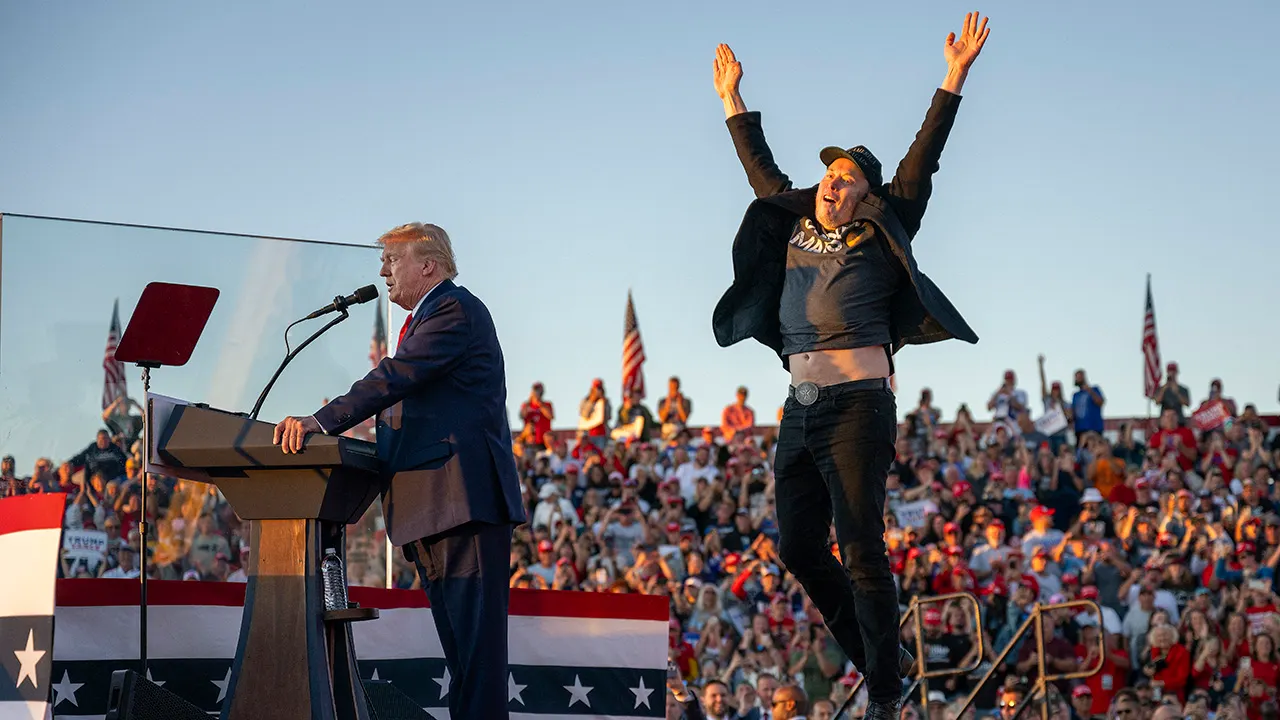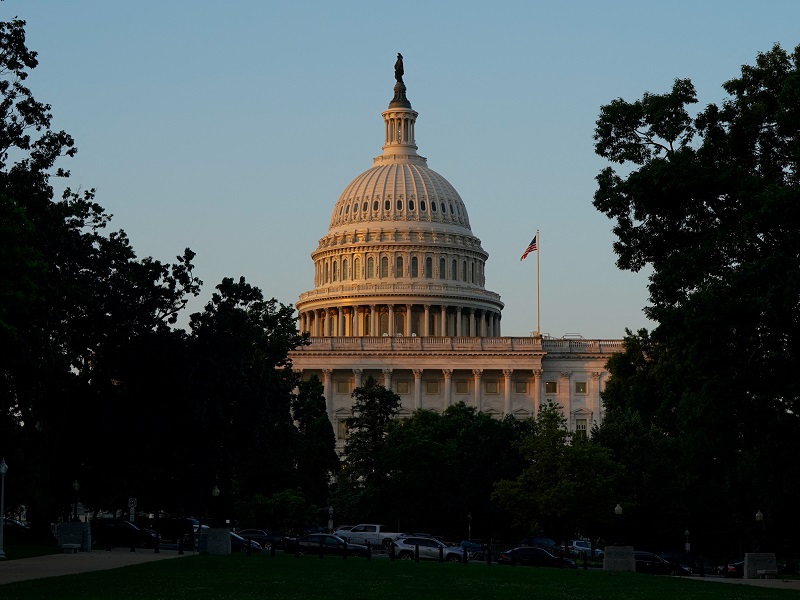Trump-Musk Feud Sparks Market Commentary and Reconciliation Calls

The once-solid alliance between President Donald Trump and billionaire entrepreneur Elon Musk has dramatically unraveled, culminating in a public feud that has captured widespread attention. This disintegration marks a stark reversal from the earlier days of Trump's second administration, where Musk served as a key advisor. The conflict erupted primarily over differing views on significant fiscal policy, rapidly escalating into personal attacks and disputes over past political contributions.
The immediate trigger for the public fallout was Musk's vehement criticism of President Trump's proposed "big, beautiful" tax cuts and spending bill. Musk, via his social media platform X (formerly Twitter), branded the legislation as a "Big Ugly Spending Bill" and a "disgusting abomination," expressing shame on those who supported it. President Trump retaliated swiftly, expressing his disappointment in Musk, dismissing the criticism as "Trump Derangement Syndrome," and defending his bill. Trump further threatened to cut government subsidies and contracts to Musk's companies, including Tesla and SpaceX.
This feud is particularly striking given Musk's instrumental support for Trump during the 2024 presidential campaign. After an assassination attempt against Trump in Butler, Pennsylvania, in July 2024, Musk endorsed the then-GOP nominee. He became the top donor of the election cycle, contributing nearly $300 million to the Trump-aligned America PAC, which funded get-out-the-vote efforts and advertising in crucial battleground states. Musk actively campaigned for Trump, joining him at rallies, holding town halls, particularly in Pennsylvania, and even setting up a "war room" in Pittsburgh. Following Trump's victory, Musk was appointed as a special White House advisor to lead the newly created Department of Government Efficiency (DOGE), tasked with cutting federal spending, a role he held until late May 2025.
The conflict has also reignited a debate over who deserves credit for Trump's 2024 election win. President Trump asserted he would have won "even without Musk's help," suggesting his campaign, led by figures like Susie Wiles, would have secured victory regardless. Musk, however, fired back on X, stating, "Without me, Trump would have lost the election, Dems would control the House and the Republicans would be 51-49 in the Senate," calling Trump's stance "such ingratitude." Political commentators like Tom Eddy, GOP chairman in Erie County, acknowledged Musk's significant help, while longtime Republican strategist Dave Carney suggested both were right, emphasizing the crucial role of Musk's support and associated super PACs in turning out voters.
The public spat has had immediate and significant repercussions in the financial markets. Tesla's stock plummeted by over 14%, shedding $152 billion in value, after Trump called Musk "CRAZY" and threatened to pull government contracts. Musk responded by stating SpaceX would begin decommissioning its Dragon spacecraft "immediately." The downturn affected other "Trump trades" as well: Palantir fell 7% amid concerns over government contracts, DJT stock declined, and even Bitcoin, associated with both figures, saw a drop. Destiny Tech 100, an ETF with SpaceX as its largest holding, also fell 12%. This highlights how the volatile relationship between the President and the prominent CEO can directly impact investor confidence and market stability.
The feud escalated beyond policy disagreements, with Musk making serious accusations. He tweeted, "Time to drop the really big bomb: @realDonaldTrump is in the Epstein files. That is the real reason they have not been made public." This claim, if substantiated, carries profound implications. Musk also continued to criticize Trump's economic policies, suggesting that Trump's tariffs might lead to a recession. President Trump, in turn, stated that Musk "went crazy" and that he had pushed Musk out of his government advisory role, implying it wasn't Musk's choice to leave DOGE.
The public disintegration of the Trump-Musk alliance has drawn a wide array of reactions. Billionaire hedge fund manager Bill Ackman urged both men to "make peace for the benefit of our great country," a sentiment Musk acknowledged by replying, "You're not wrong." Artist Ye (formerly Kanye West) also pleaded for reconciliation. Mark Cuban, entrepreneur and former "Shark Tank" star, appeared to endorse Musk's suggestion of forming a new political party for "the middle." Y Combinator co-founder Paul Graham highlighted the seriousness of Musk's Epstein allegation, suggesting it could force Trump to resign if true.
Politicians also weighed in on the feud. Democratic Senator John Fetterman criticized his own party for its sudden support of Musk, noting their previous opposition and acts like "vandalizing Teslas." Fetterman, while agreeing with Musk's rejection of Trump's bill, called for consistency from Democrats. Democratic Representative Ro Khanna suggested that Democrats should work with Musk to oppose the bill. Conversely, GOP Representative Tim Burchett found it ironic that Democrats were now aligning with Musk, whom they previously "hated." Other figures in Trump's orbit, like former advisor Steve Bannon, criticized Musk and suggested Trump should take control of SpaceX. Tesla bull Ross Gerber also expressed disappointment with Musk for "attacking all the people he helped put in power."
The controversy surrounding Trump's "big, beautiful bill" extends beyond his feud with Musk. The legislation, aimed at fulfilling campaign promises like border security and tax cuts, has faced challenges even within the Republican-led Congress, with some GOP Senators expressing concerns. This internal party friction, compounded by Musk's vocal opposition, complicates the bill's passage. Amidst this domestic turmoil, President Trump also engaged in international diplomacy. Described as reverting to a "nice guy" after earlier tensions, he held a "very good call," in his words, with Chinese President Xi Jinping focused on trade issues, indicating a potential thaw in U.S.-China trade relations.
The public and acrimonious breakup between Donald Trump and Elon Musk serves as a stark reminder of the volatile nature of high-profile political and business alliances. What began as a powerful partnership instrumental in a presidential campaign has devolved into a bitter dispute with tangible consequences for the stock market, Musk's companies, and potentially Trump's legislative agenda. The ongoing drama, fueled by social media exchanges and serious accusations, continues to unfold, leaving observers to ponder the long-term impacts on American politics and business.











